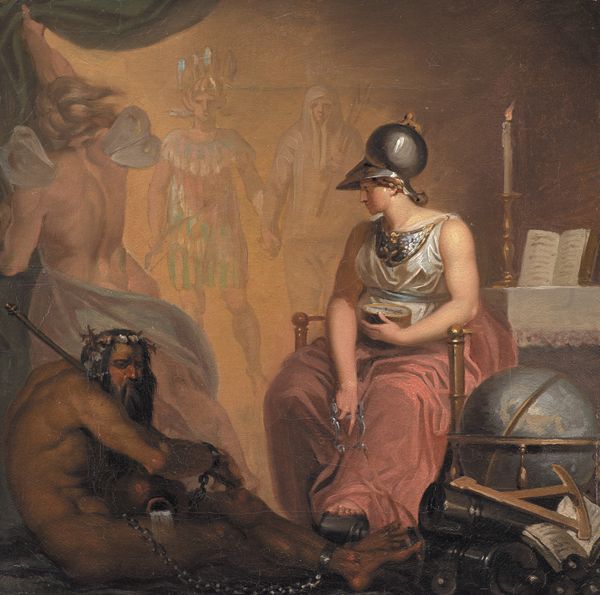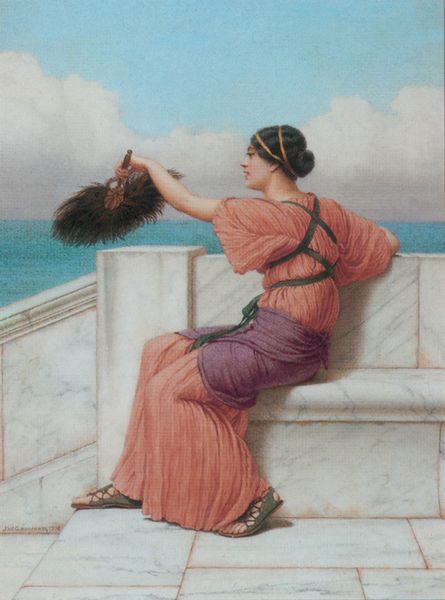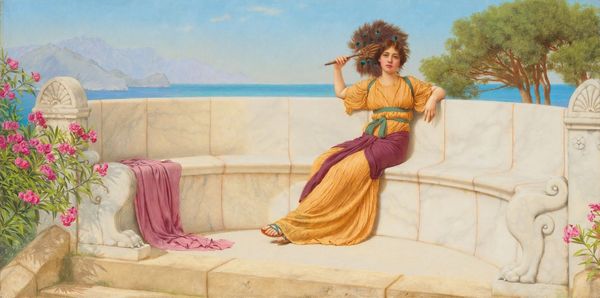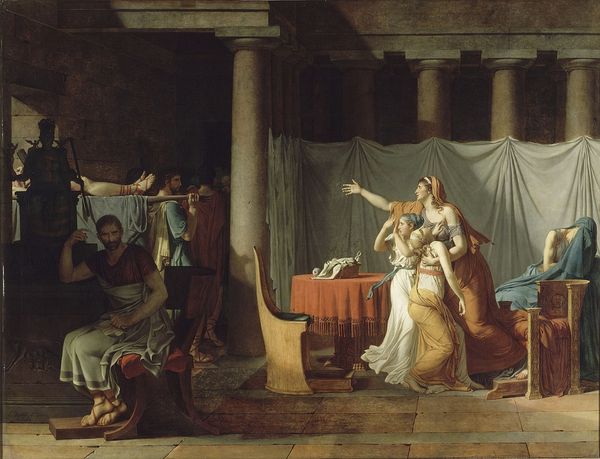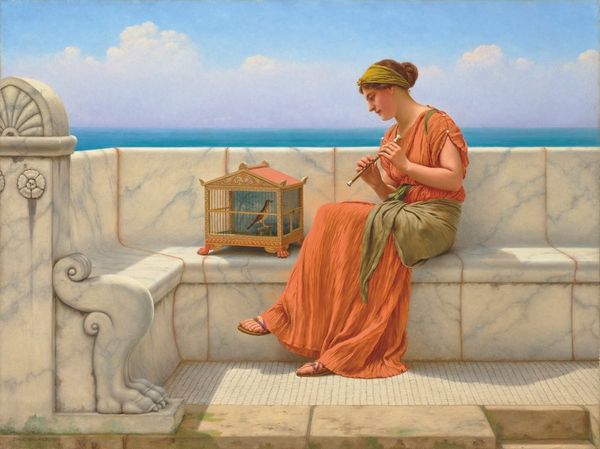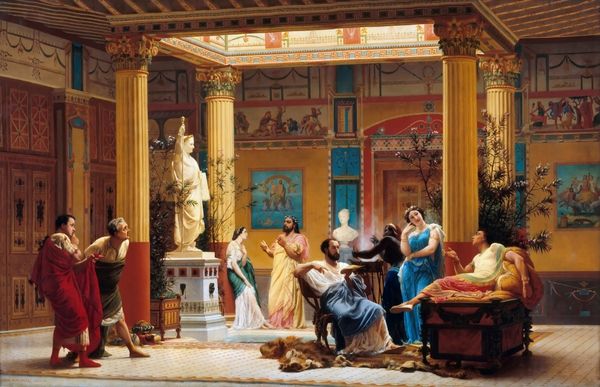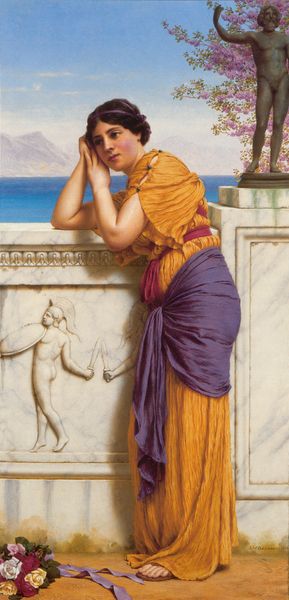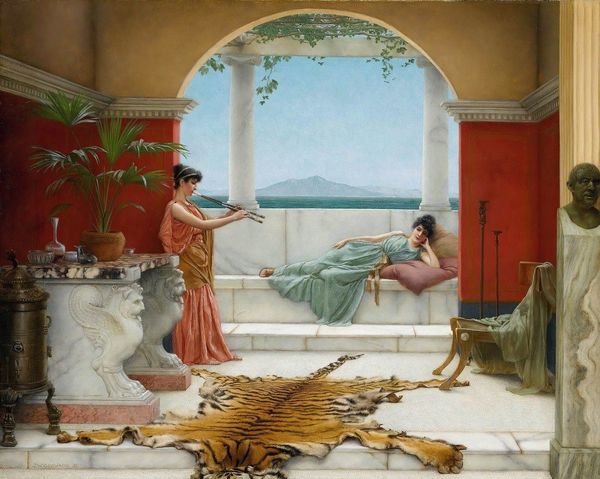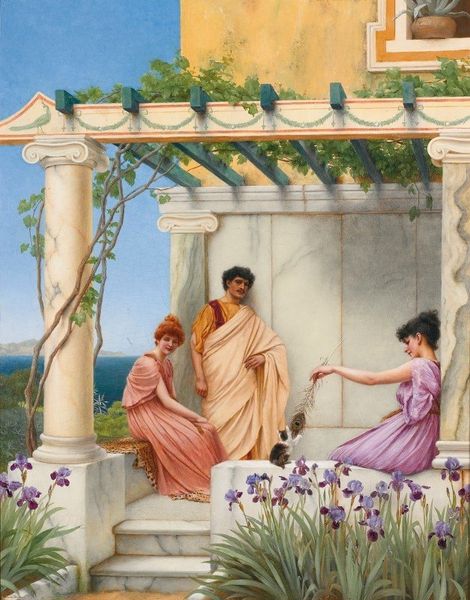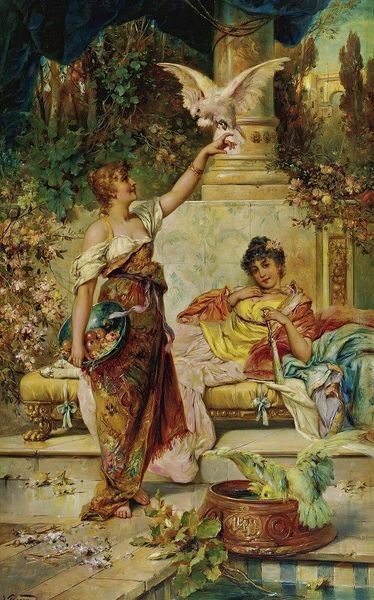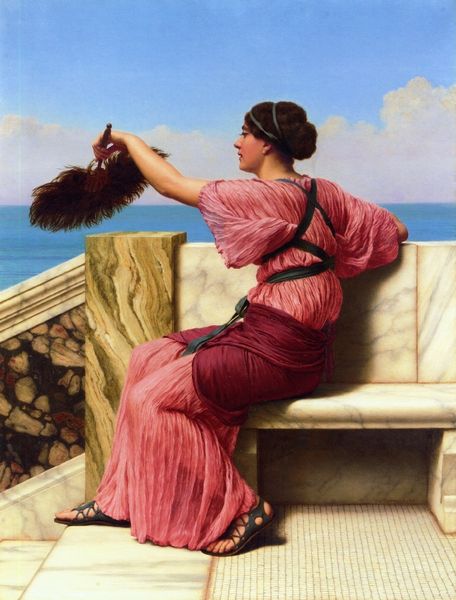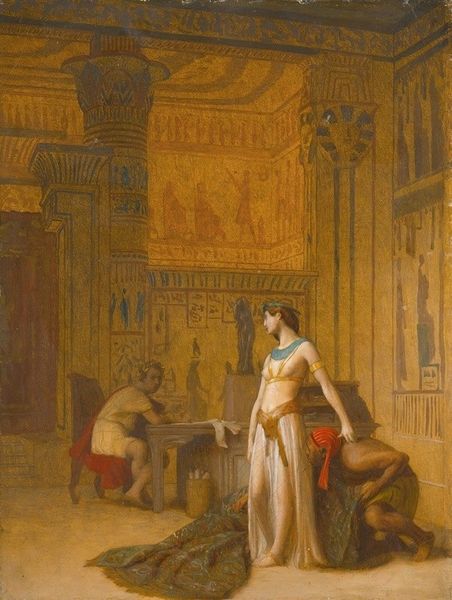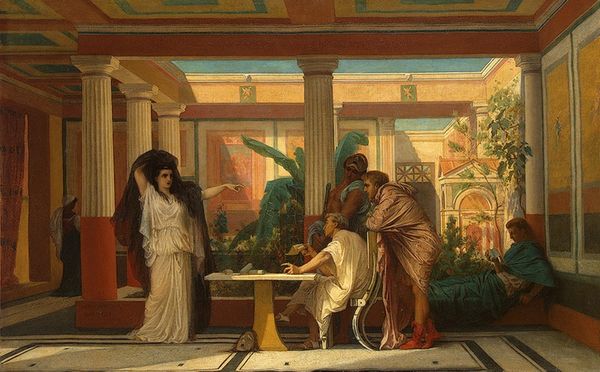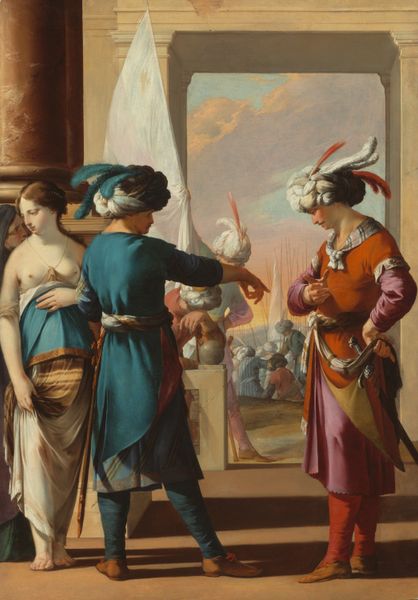
#
figurative
#
automotive concept
#
automotive
#
possibly oil pastel
#
oil painting
#
underpainting
#
painting painterly
#
animal drawing portrait
#
watercolour illustration
#
watercolor
#
warm toned green
Copyright: Public Domain: Artvee
Curator: This is "Vendeuse de Fleurs au Parthénon" by Theodoros Ralli. We do not have the date of execution for this work, but Ralli was a 19th-century Greek painter known for his Orientalist and genre scenes. Editor: My first thought? It's got such a gentle, almost wistful, light to it. It’s as if a dream about antiquity is painted with watercolor, softened edges. I love that vaporous incense, it suggests a kind of liminal space, right? Curator: Indeed. Ralli here offers us a scene imbued with layered symbolism. The flower seller, adorned in what seems like classical Greek attire, occupies a space amidst the ruins of the Parthenon, a powerful symbol of ancient Greek democracy and philosophy. Editor: And it feels charged, right? Like, the crumbling columns next to the braziers belching smoke - I find myself asking "Is this reverence, nostalgia, lament…or even some kind of protest?". Curator: Precisely! Considering Ralli's identity as a Greek artist operating within a Western European art world dominated by Orientalist tropes, his work grapples with complex issues. This painting could be viewed as a romantic idealization of a past glory and maybe as a comment on Greece’s present circumstances, or as some theorists propose, about the European fascination of the orient and how it projected its aspirations, fantasies and power dynamics onto the region. Editor: Fascinating! The little details become even more interesting in that light, right? I mean, that cheetah print… is that adding an element of the exotic, contrasting against the ruins. Curator: Certainly, that cheetah print may represent European colonial aspirations and desires within a classical, historical context. It's really powerful in the way it subtly critiques power dynamics of the time. The woman offering her wares acts, perhaps, as Greece itself—presenting the beauty and culture to the foreign spectator. Editor: Yeah! There's an echo in this space. Ralli painted more than just a scene. It asks us questions about then, and now too. I find that fascinating. Curator: Exactly! Ralli has captured a specific moment of transition and the complexities of identity and representation during that period. Editor: What an experience. I will surely return to look closer!
Comments
No comments
Be the first to comment and join the conversation on the ultimate creative platform.
